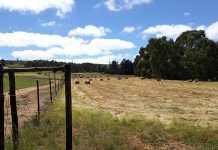Food is a very emotional issue for most of us. However, the emotional response varies widely between the world’s majority of hungry people and the minority of well-to-do for whom obesity rather than malnutrition is the problem, and who can afford to worry about all types of esoteric things.
Those who can afford to do so want to know how and where their food was produced. Retailers have taken these normal concerns about the origin and quality of food and created a long list of ‘properties’ food must adhere to in order to be ‘healthy’. They then use the distinctions embodied in their lists to differentiate their products.
This is a form of propaganda and has resulted in consumers insisting on such things as hormone-free milk, antibiotic-free lamb, grass-fed beef, free-range eggs and a lot of other similar products, mainly because advertising has told them to do so.
And the retail sector has neatly passed on the responsibility to produce food that complies with consumer perceptions of good food with a lot of regulations the primary producer and processor have to adhere to.
These perceptions have been largely created by the retail sector and compliance has increased the cost of food to the consumer, while it’s doubtful whether it’s really helped the farmer and processor to produce ‘safer’ food. Does a register in which careful record is kept every time a glass breaks really ensure the quality of the eggs produced on a farm?
Negative advertising
It’s my contention that advertising that promotes a specific product as free of some ‘dangerous’ or ‘unhealthy’ substance, or is produced in a more ‘humane’ or ‘environmentally-friendly’ way than another, similar product, actually undermines consumer confidence in that product as a whole. The term ‘antibiotic-free lamb’, for example, creates the impression that all other lamb is full of antibiotics – something which is patently untrue.
‘Grass-fed beef’, meanwhile, implies all other beef is fed some undisclosed ‘unhealthy product’. Intensive livestock production is tagged as ‘factory farming’ by activists, and ‘extensive ranging’ is regarded as ‘environmentally-friendly’. Yet various scientific studies during the past couple of years clearly show the opposite is true!
Intensive farming has a much smaller carbon footprint than extensive farming. For instance, well-known US expert on sustainability, Dr Jude Capper, recently estimated that the US bison population actually has a larger carbon footprint than the current US beef population.
Feeding the world
Currently, a large part of Africa is regarded as having serious food security issues. For the majority of African people, wealth is regarded as having one meal per day. And they don’t really care if the maize was produced from GM seed, as long as it’s obtainable and affordable.
If we want to feed our own and the growing Southern African population, we’ll have to use all the modern technology that’s available, and that includes GM seed that enables farmers to use less insecticides, fertiliser that enables them to increase yield per hectare, and pesticides to prevent insects and other pests from spoiling the produce. Yes, there’s a small niche market for ‘organic products’, but unfortunately, in most cases, the price difference between the organic and non-organic product doesn’t pay for the extra cost of producing the former.
Farmers must tell
For too long agriculture has relied on the retail sector to inform and educate the consumer. Agriculture now needs to explain to the consumer why farmers do certain things. We should tell the consumer that, yes, if my cow or sheep gets ill, I will use the best available medicine to get it healthy again.
Just as food processors add preservatives to food to prevent it from spoiling, I will add products to feed that prevent mould from growing and will even in some cases add some antibiotic to feed to prevent unhealthy bacteria from making animals ill.
Farmers will use GM seed, as it enables them to produce cheaper crops with less impact on the environment. And they’ll use as few chemicals as possible and limit cultivation as much as possible, not to save the environment, but simply because it makes very good economic sense to do so.
Dr Koos Coetzee is an agricultural economist at the MPO. All opinions expressed are his own and don’t reflect MPO policy. Contact Dr Coetzee at [email protected]. Please state ‘Global farming’ in the subject line of your email.




